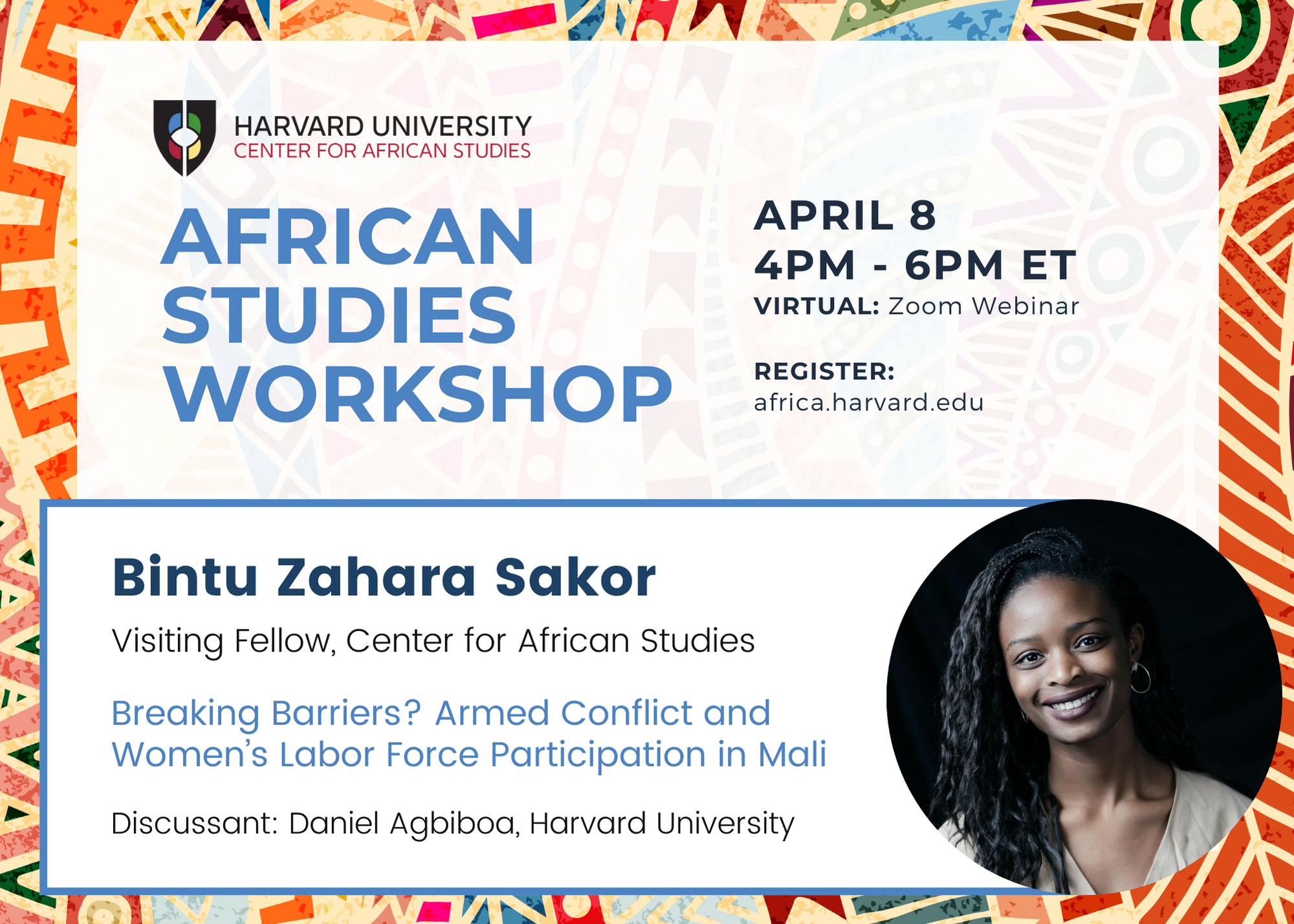Date:
Location:

The African Studies Workshop at Harvard continues this year with a new and exciting schedule of presenters. The presenters' papers explore Africa’s changing place in the world - and the new economies, legalities, socialities, and cultural forms that have arisen there. We shall also interrogate the claim that the African present is a foreshadowing of processes beginning to occur elsewhere across the globe; that, therefore, it is a productive source of theory and analysis about current conditions worldwide. At each workshop, a scholar presents a paper on one facet of the rapidly changing position of Africa in the global political economy and the impact of that change on global distributions of wealth, well-being, and power. Then a discussant provides commentary followed by an open discussion, in which students are given the floor first, followed by anyone else in attendance. Workshop presenters are scholars of high international repute as well as up-and-coming Africanist intellectuals.
Join us on April 8th from 4-6 pm for the Spring 2024 African Studies Workshop with Bintu Zahara Sakor presenting:Breaking Barriers? Armed Conflict and Women Labor Force Participation in Mali
Discussant: Daniel Agbiboa, Harvard University
Abstract: Do gender relations and, in particular, women’s labor force participation change during armed conflict? How do the interactions between armed conflict processes and prewar norms shape the trajectory of women’s participation in the labor force? This article uses a mixed-method design to examine these propositions. Building on the result from the statistical analysis of the correlation between armed conflict and female labor force participation, the article further draws on analysis from interviews and focus-group discussions from fieldwork in Bamako, Mali between April and May 2022. It finds that the interaction of armed conflict processes such as the intensity and existing patriarchy has resulted in a lack of positive changes in labor force participation among women in Mali, and with them the possibility of exerting greater economic autonomy and contributing to attain a potential gender dividend. This research sheds light on the role of ordinary women as actors whose access to workforce opportunities is challenged in the context of a security crisis, despite their aspirations. Bridging a gap in the literature, the article describes how gender relations and roles are intertwined into a complex web of cause and effect in which armed conflict can be seen as a ‘pattern of conflict and patriarchies’.
Bintu Zahara Sakor is a Ph.D. Candidate at the Peace Research Institute Oslo (PRIO) and University of Oslo (UiO)’s Department of Political Science, Norway. Her key research areas include Political and Economic Development of Sub-Saharan Africa, and she is particularly interested in Demography, Youth bulges, Gender and Conflict Dynamics in West Africa (and Sahel region). Her dissertation titled: “Unlocking Sub-Saharan Africa’s Demographic Dividend: Youth bulges, Human Capital and Insecurity” focuses on how SSA countries can effectively channel their youth human resources into development and avoid the security pitfalls. Zahara received her B.A. in International Relations and Quantitative Methods (2016) and MSc in Conflict Resolution (2017) from University of Essex, United Kingdom, and is currently a visiting fellow at Harvard University Center for African Studies.
**This week's ASW will take place online only. Please register for the Zoom link to attend.
